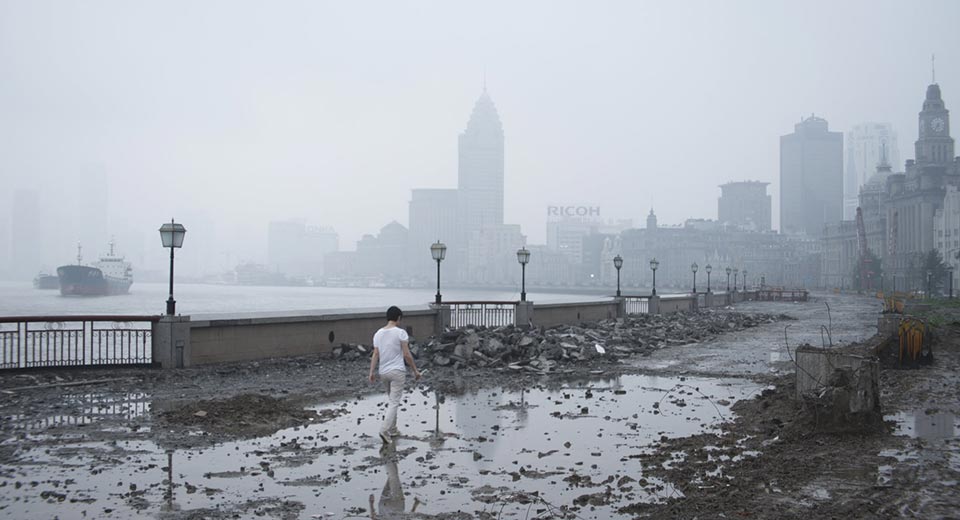
From poignant photo essays to ephemeral Instagram posts, the uniformly gray, stateless appeal of “ruin porn” has claimed a rightful place among its better-heeled cousins – food, “design,” and the old-fashioned article – within our voracious social media diets. The lure is as powerful as it is complex: ruin porn stands (albeit barely) as both a testament to man’s hubris, and a grim portent of our coming human-less future. The latter premonition hints at a deeper problem (one of many) that comes with ogling crumbling infrastructure: whether the object of scrutiny is a Brutalist state complex, or an edifice of long-faded, last-century grandeur, the presence of human life is often conspicuously absent.
Fortunately, Jia Zhangke’s I Wish I Knew surpasses these superficial conceits in favor of something far richer: a meditative love-letter to both city and citizenry. Framed by the then-forthcoming 2010 Shanghai Expo, Jia explores the rapidly shifting nature of Shanghai identity, neatly connecting the centuries-old port city’s history to its improbably rapid growth spurt. Combining first-person testimonials from lifelong locals with an up-close examination of the Expo center’s construction (and the concurrent destruction of the surrounding neighborhoods), the resulting film is less city-symphony and more city-requiem, a plaintive dirge composed in homage to a time gone by. Unlike traditionally modernist works like Man with a Movie Camera or Rien que les heures, the humanist undercurrent of I Wish I Knew has a closer analogue in the work of American oral historian Studs Terkel, who emphasized the mundanity of workaday life and personal anecdote over sweeping societal pronouncements. Let the lesser image-makers focus on the output of mankind’s ambitions – and even, perversely, delight in its decay – I Wish I Knew redirects our jaded gaze toward those yearning souls left in its wake.

